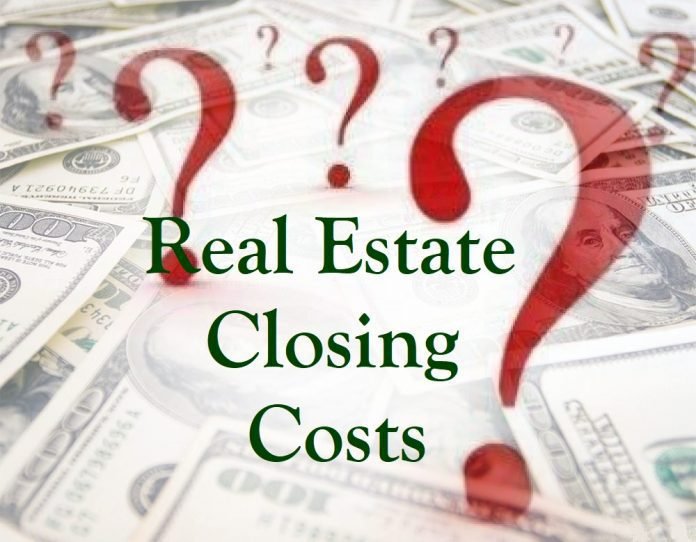Last Updated on October 15, 2022 by
If you have ever purchased or sold a home, then you must be aware of closings costs. When you buy a home, you need to look out for closing costs such as lender fees, the home survey fee, transfer fee, commissions, etc. which total between 3% and 4% of the sales price of your home.
If you are a seller, not a buyer, then you will also have to pay an additional set of the seller’s closing costs. The seller closing costs can be anywhere between 5% and 10% of your home’s sales price. These include real estate commissions, pro-rated property taxes, and any contributions towards the buyer closing costs that were negotiated in your deal. Before you buy or sell a house in Texas, read all about closings costs.
Table of Contents
What are closing costs?
Closing costs are any fees payable above and beyond the sale price of the house. These include,
- Escrow fee
- Title fee
- Notary fee
- Legal fee
- Taxes and any assessment or survey fee.
Apart from these important ones, plenty of other fees come under closing costs.
Average closing costs in Texas
According to research from ClosingCorp, the average closing cost in Texas is 1.41% of the purchase price. This percentage can turn into tens of thousands of bucks if you are buying a luxurious house.
Who pays closing costs in Texas?
In Texas, closing costs are divided between the buyer and seller. Your closing costs will vary depending on many factors, such as the selling price, down payment amount, and credit score. The seller will typically pay between 5% and 10% of the sales price and the buyer will pay between 3% and 4% in closing costs.
Closing costs for sellers in Texas
Let’s look at some of the fees that the seller has to pay, which come under closing costs.
Title Insurance Premium
In Texas, this is a fee that the seller has to pay. Title Insurance Premium is a negotiable fee, so this could end up on the buyer’s side at times.
Escrow Fee
The buyer and seller each have to pay their own escrow fee at closing. The title company charges an administrative fee to work on the file through closing. This fee is called an Escrow fee.
Document Preparation
Document preparation is a seller’s responsibility. Plenty of documents is required to be signed while selling a house. Usually, you need to take the help of a third-party attorney to put together these documents. The fee to draw these documents typically ranges from $100 to $150, in Texas.
Tax Certificate
The title company has to balance and prorate year-to-date taxes at the time of closing a deal. For this, they order a tax certificate meant to confirm the correct amount of taxes to collect. The tax certificate may differ based on the company or county. But it can typically range from $40 to $70.
Delivery/Courier Fee
When a closing happens, many documents will be collected and mailed. Some title companies will pass that fee on to the buyer and seller. These fees can be divided between the buyer and the seller. Not all title companies will charge this fee, so make sure you double-check this.
Mobile Notary
A mobile notary can be used if you think it’s more convenient to have someone come to you to sign the papers. Typically, the mobile notary fee can range from $100 to $250.
Contractual Expenses for Sellers
These are expenses that could go to a variety of third parties or even directly to the buyer.
HOA Fees
The seller needs to pay fees to close if the property is in an HOA. All three HOA fees are negotiable.
Resale Certificate
This document summarizes the accounting information the title company will need to balance and collect at closing. The resale certificate will usually cost $200-$250.
Commissions
The major set of fees a seller will have to typically pay is the seller’s agent and buyer’s agent commissions.
Closing costs for buyers in Texas
Let’s look at some of the buyer closing costs.
Escrow Fee
The buyer will also pay an escrow fee for processing the close of escrow.
Recording Fees
Some documents need to be recorded with the county after the transaction is finalized. This fee ranges from $120 to $160 depending on the county.
Loan Origination Charges
These fees can differ based on the terms of the loan. You can even get your loan origination charges to $0, if you agree to a higher interest rate. Or, you can pay as much as 1% of the loan amount to get a lesser interest rate.
Appraisal Fee
To verify if the value of the property lines up with the contract price, the lender will need an impartial third party to provide an appraisal. The buyer has to pay the fee for this appraisal and the fee usually ranges from $500 to $700.
Lender’s Document Preparation
The lender generates plenty of documents for a closing and charges a fee from the buyer.
Upfront Mortgage Insurance
Upfront mortgage insurance provides security to the lender from the risk of nonpayment from the buyer. This fee is charged on an FHA loan.
Homeowner’s Insurance
Homeowner’s insurance can range between $900 and $2000 per year.
Sometimes home buyers and sellers overlook costs outside of the down payment and monthly mortgage payment. Before you decide to budget your buying or selling expenses, it is important to calculate your closing costs using a closing cost calculator. Knowing who pays closing costs in Texas is vital while buying or selling a house. Get a concrete understanding of your closing costs now, so that you can budget your finances better.
Read More: Real Estate Agent vs Cash for Homes Company: What’s the Difference?




















